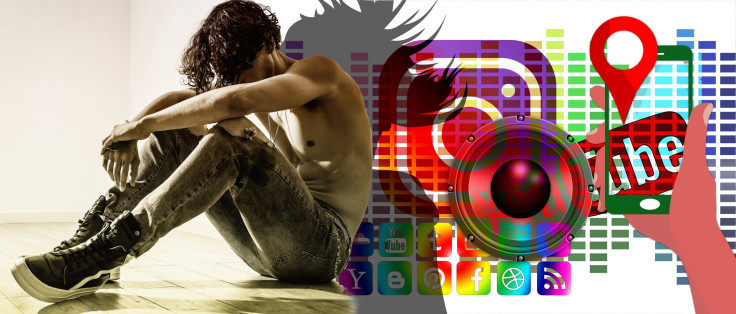Social Media Addiction May Increase Suicide Rates Among Adolescents, Experts Say

A majority of adolescents across the globe are addicted to the internet, especially to social networking sites. The sites are mainly used as a medium to connect with their family and friends, but new research suggests that internet might harm teen's mental health.
Numerous studies and reports have already raised questions about the role of social networking sites in the lives of teenagers. Some of the studies have focussed on the relationship between addiction to social media and vulnerability, suicide, sleep and mental health in adolescents.
A study published in The Journal of the American Medical Association (JAMA) last month indicated that there is a rapid increase in the suicide rates among young girls between the age groups of 10-14.
For the study, a group of researchers from the The Ohio State University College of Medicine in Columbus, West Virginia University in Morgantown and The Research Institute at Nationwide Children’s Hospital in Columbus collected data on the suicide rates among young boys and girls between the age group of 10-19 years during the period 1975 to 2016.
After analyzing the data of more than four decades, the researchers concluded that the gap between suicide rates in young boys and girls is narrowing at a fast pace. According to them, social networking sites have a big role to play in it.
Another study published in the JAMA Psychiatry two weeks ago also highlighted the role played by social media in increasing the suicide rates among teenagers, especially girls. The research paper focussed on the increased suicide rates among adolescents in the United States with the release of Netflix series 13 Reasons Why.
During the study, the researchers found that there was an immediate increase in the suicide rates among individuals between the age group of 10 to 19 within three months of the show’s premiere. According to the academics, it could be due to the discussions about the suicidal scenes in the show on social media, which might have led the young people to imitate the behavior.
A report released by the Boston Children’s Hospital suggested that several adolescents spend around nine hours a day online. Among them, 95% have a smartphone with them and 88% own a laptop computer or desktop. The report also indicated that 54% of the adolescents spend too much time on their cellphones and 45% of them are almost constantly online.
“The technology isn’t the problem, we’re the problem. What we need to do is look at the whole picture around these young people; we need to look at how kids and how we all are using social media,” Dr. Michael Rich, the director of the Center on Media and Child Health at Boston Children’s Hospital and an associate professor of pediatrics at Harvard Medical School, told The New York Times.
Rich also said children could use interactive media in dangerous or problematic ways, especially because many of the things they find on social media could make them vulnerable.
However, Dr. Ana Radovic, an adolescent medicine specialist and an assistant professor of pediatrics at UPMC Children’s Hospital of Pittsburgh, said the impact of social media on adolescents completely depends on the different ways they use their devices.
“It’s a complex relationship, where you start off, what happens to you online, how you interpret what happens to you,” she said.
Radovic revealed that she has heard both positive and negative stories on social media from her patients. Citing few examples, she said a teen was inspired by a video of her favorite band member hurting herself on Instagram. On the other end, a teen was getting help for his problem through several online groups.
“Teens are really driven by their peers, really rewarded by peer interactions. They’re exploring their identity, being creative, and sharing things that they’ve done, but it’s difficult for them to filter out the negative. It’s a balancing act for some of these teens, finding help and support online but not being able to filter out the negative things,” she added.
© Copyright IBTimes 2024. All rights reserved.




















